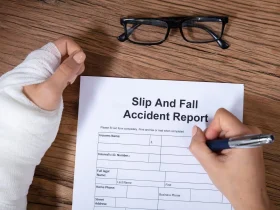If you have ever tried to collect a monetary judgment following a civil court victory, you may be of the mind that judgment debtors have an advantage in the collection game. Fortunately, creditors do have a few things working in their favor. One is a law known as the Uniform Enforcement of Foreign Judgments Act (UEFJA).
The UEFJA was originally developed for the purposes of implementing a standardized and streamlined process for enforcing monetary judgments across state lines. Currently, 48 states participate in the law’s compact. Likewise for the district of Columbia, the U.S. Virgin Islands, and the Northern Mariana Islands.
Key Characteristics of the UEFJA
The UEFJA establishes an agreement allowing voluntary participation among U.S. States and territories. It contains some key characteristics that are vital to successful collection efforts across state lines. They are as follows:
- Definition – The law defines a foreign judgment under the act as any judgment, decree, or order of a recognized court entitled to full faith and credit in the state in which enforcement is being attempted.
- Process – The UEFJA establishes a process by which judgments can be domesticated in new states. Domestication is necessary to pursue enforcement outside the jurisdiction of the court that rendered the original judgment.
- Legal Status – Once a judgment has been domesticated, it takes on the legal status of a judgment originally decreed by a court in that jurisdiction. It is treated like any other judgment the court might render.
- Notification – As a general rule, the UEFJA requires notifying the judgment debtor of the judgment’s domestication and renewed collection efforts.
The net effect of the UEFJA is giving judgment creditors the opportunity to pursue debtors who might choose to leave the state to avoid payment. There may be some challenges that come with enforcement in a new state, but pursuing across state lines should not be too big a deal once domestication is accomplished.
Using a Collection Agency
Although the UEFJA gives judgment creditors the legal authority to pursue collection across state lines, there may be some practical hurdles to overcome. For instance, a creditor may not have the time or resources to devote to out-of-state collections. But there are options. One such option is utilizing a collection agency.
Utah-based Judgment Collectors is one such agency. Their value proposition is the fact that they specialize exclusively in judgments. The agency does not handle any other types of debt collection. Judgment Collectors also works on consignment rather than purchasing judgments outright.
Some creditors choose to have their attorneys handle collections on their behalf. Doing so may or may not be cheaper than working with a collection agency. One of the disadvantages of turning to an attorney is the fact that they may not be able to devote a lot of time and effort to collection.
Staying Within the Law’s Limits
Whether a judgment creditor brings in professionals or handles collection in-house, the biggest challenge that comes with a UEFJA is staying within the laws of any state in which collection efforts are being undertaken. A domesticated judgment is subject to the laws of that state – not the state in which the original judgment was rendered.
Although judgment debtors tend to have the upper hand in the collection game, the UEFJA does give creditors access to a valuable tool for pursuing debtors across state lines. Having a standardized and streamlined system for domesticating and pursuing judgments makes life easier on both creditors and their agents. Whether or not that translates into better collection rates is another topic for a different post.








